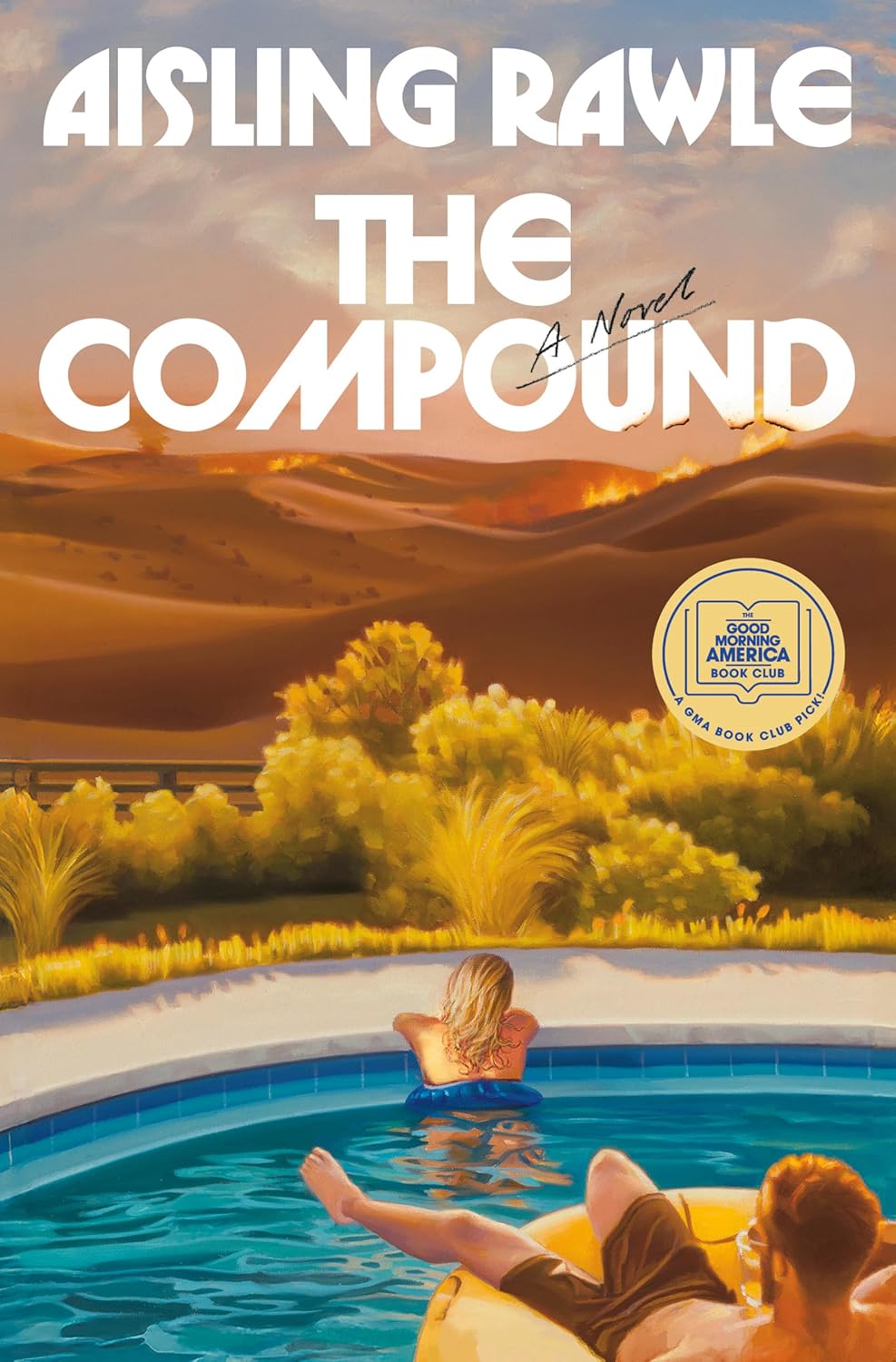Book Summary
The Compound drops readers into a sun-scorched desert compound where twenty young contestants—ten women and ten men—compete in a twisted reality show for survival and luxury prizes. Narrated by Lily, a disillusioned makeup saleswoman, the story unfolds through her increasingly fragmented perspective as cameras broadcast every intimate moment to a ravenous audience. Tasks escalate from humiliating (“Spit in your bedmate’s mouth”) to dangerous, with banishment awaiting those who fail to secure a nightly bedmate. What begins as a glossy competition devolves into a psychological battleground where consumerism replaces morality, and survival demands moral compromise.
Rawle’s debut masterfully blends the voyeuristic appeal of Love Island with the primal tension of Lord of the Flies, set against a vaguely dystopian backdrop of environmental collapse and perpetual war. While the pacing stumbles early with repetitive tasks, the novel gains momentum as alliances fracture and the compound’s opulent facade crumbles. The finale’s ambiguity—Lily surrounded by material wealth but emotionally hollow—leaves readers questioning whether any prize justifies the cost of winning.
Key Themes
Performance Culture: Rawle dissects how constant surveillance warps identity, turning authenticity into a commodity. Contestants perform intimacy for cameras, their relationships reduced to strategic maneuvers for rewards like diamond earrings or a front door. Lily’s self-awareness (“I was becoming what the cameras wanted”) mirrors modern social media’s pressure to curate personas, making the novel a sharp critique of digital-age performativity.
Consumerism as Survival: The compound operates as a microcosm of late-stage capitalism, where basic necessities (food, shelter) are dangled as rewards for compliance. Rawle exposes how materialism fuels desperation—Lily trades dignity for lipstick, then rationalizes cruelty for security. The sponsorships woven into tasks (e.g., mandatory brand acknowledgments) echo influencer culture’s transactional relationships, underscoring capitalism’s infiltration of human connection.
What Makes It Unique
Narrative Seduction: Rawle implicates readers in the voyeurism she critiques. The prose shifts between Lily’s detached observations and surreal, dreamlike passages as her psyche fractures, mirroring reality TV’s disorienting grip. This stylistic choice forces readers to confront their own complicity—we’re horrified yet compelled to keep reading, much like the show’s audience.
Irish Perspective on Global Tropes: As an Irish writer, Rawle brings fresh nuance to American-style reality TV tropes. Lily’s economic precarity (a retail worker fleeing war-torn instability) reflects global inequalities rarely explored in dystopian fiction. The compound’s desert setting, simultaneously lush and barren, mirrors Ireland’s own colonial history of scarcity and exploitation, adding geopolitical depth.
Reader Reactions
Reviews highlight the novel’s addictive quality: I devoured this in one sitting—it’s Black Mirror meets your guiltiest binge-watch
. Many praise Lily’s flawed realism (She’s passive and shallow, which makes her transformation chillingly believable
), though some critique underdeveloped male characters like Tom, whose trauma feels underexplored.
The ending polarizes: I needed more closure
contrasts with The ambiguity IS the point—winning leaves Lily emptier than losing ever could
. Kirkus notes the Orwellian
undertones, while Vulture applauds its eerily familiar
critique of spectacle culture.
About the Author
Aisling Rawle, born in 1998 in rural County Leitrim, Ireland, worked as a secondary school English teacher before debuting with The Compound. Her background informs the novel’s layered critique of systemic inequities—students’ struggles with economic precarity resonate in Lily’s limited choices. Rawle’s piano-teaching hobby surfaces in the narrative’s rhythmic pacing, where mundane routines crescendo into chaos.
Rawle’s Irish identity shapes the novel’s outsider perspective on American media imperialism. The compound’s sponsorships parody global brands, while Lily’s ambivalence toward fame reflects Europe’s more skeptical view of celebrity culture. This cultural lens elevates the book beyond typical dystopian fare, offering a transnational commentary on capitalism’s toll.
Memorable Quotes
“Reality had become a slippery thing: I wasn’t certain what part of my life I was an active part of, and what was a result of the machinations around me.”
“People don’t want reality. They want a version of it they can binge.”
